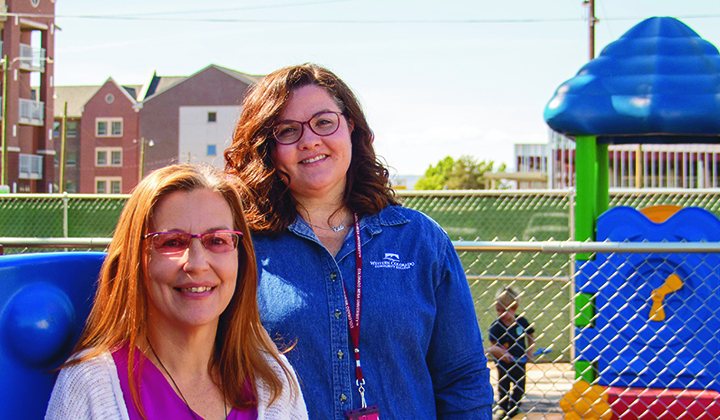WCCC program helps combat early childhood education teacher shortage
Western Colorado Community College is investing in some very important people – Colorado’s youngest minds and the teachers who will educate them. WCCC’s Early Childhood Education program and 11 high school students recently completed a pilot initiative to jumpstart teaching careers.
Juniors and seniors from Mesa County Valley School District 51 finished the first half of the Technical Scholars program, which allows qualified students to take career and technical courses through the community college. Students earn both high school and college credit at little or no cost to them.
Getting motivated, quality early childhood educators into the job market is critical, stresses Vail Shoultz-McCole, WCCC’s Early Childhood Education program director. Universal preschool will go into effect for four year olds living in Colorado in 2023.
Though beneficial, the expansion of early education will further strain a field already suffering a shortage of qualified teachers. Public and private schools will be challenged to find teachers to staff the universal preschool program as will private centers that serve even younger children. Many parents depend on private early childhood education centers while they work to support their families.
The Colorado Department of Labor and Employment predicts a substantial increase — 33% to 43% through 2025 — in the need for early childhood teachers.
“We’ve been really strategic in planning the classes in the Technical Scholars program so they can lead into WCCC’s associate degree and CMU’s bachelor’s degree programs,” said Shoultz-McCole. “We’ve also embedded small achievable successes throughout the program.”
Benchmarks reached during the program help students see their progress and stay motivated, she explained. For example, after just one year in the Technical Scholars program, students earn 12 college credits and an entry level teacher’s certificate. After the second year, they’ll have 24 college credits and their teacher’s certificate, according to Stephanie Stelljes, Early Childhood Education lecturer.
After two years, students will have fulfilled the education requirements to apply for national certification as a childhood development associate, the most widely recognized credential in early childhood education, Stelljes said.
The WCCC Early Childhood Education Technical Scholars program gives high school students the opportunity to explore a field without financial risk, a substantial head start in their education and experience, timely entry into the job market and a pathway to continued learning.
“We’re being very strategic about adding to the pool of qualified early education teachers,” said Shoultz-McCole. She hopes to attract up to 20 students to the program each year.
